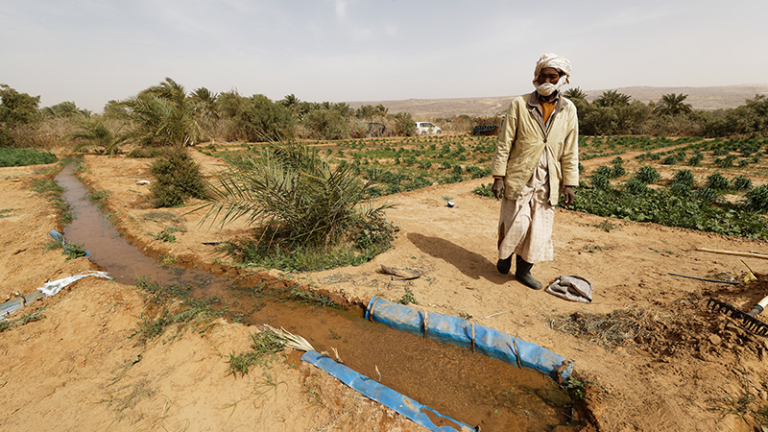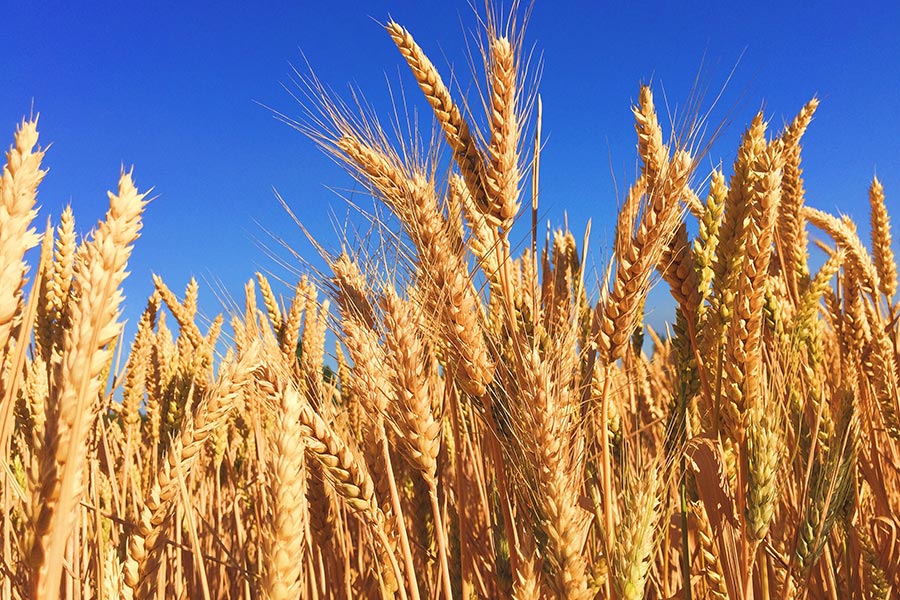Daniel Njiwa, Head of Regional Food Trade, AGRA
The Alliance for a Green Revolution in Africa, or AGRA, responds to government agendas during times of crisis through an evidence-based and consultative approach. With the support of members from its Partnership for Inclusive Agricultural Transformation, AGRA is enhancing its data collection and monitoring capabilities to track food and commodity prices, weigh their implications and engage governments to help them make decisions, implement responses, and protect vulnerable smallholder farmers and consumers.
Currently, AGRA is deploying its assets in the area of data and evidence gathering to avert the impending food crisis using its Food Security Monitor, its digital Regional Food Balance Sheet and regular engagements with senior country officials such as Ministers and Permanent Secretaries. AGRA is also planning to deploy its wide network of Village Based Advisors to ramp up its extension and information dissemination machinery to provide the advice needed by small farmers about what to plant, which inputs to use, and where to source them.
So far, we have learned that updated and relevant data as well as cross-country knowledge exchange is key for any engagement process with governments. Events at the global level have different implications on the ground, and response plans should be tailored to each context to avoid over-investing or focusing on short-term effects while ignoring long-term interventions that help build resilience to future shocks.
I lead the Regional Food Trade programme at AGRA. Our main agenda is to support governments in formulating and implementing predictable policies to encourage private sector investment in agriculture markets and trade. On the other hand, we also work with the private sector to strengthen supply chains and facilitate inclusive income growth for small farmers. Both of these objectives are aimed at enhancing regional food security through unfettered flow of food from surplus to deficit areas. The current war in Ukraine, just like other crises such as climate shocks or the COVID-19 pandemic, affects how governments and private entities behave in the implementation of policies and investments. Informing such policies and investments through crises is therefore key to our work of helping shape functional markets and trade.
During a crisis of this nature, businesses in the agricultural sector are severely impacted. Input suppliers in particular have endured the worst effects as fertilizer and other input prices rise, leading to shortage of critical inputs for farmers. Agro-dealers and micro businesses that trade in small quantities may lack inputs to sell because of the escalating prices, and have limited liquidity to procure enough supplies to remain afloat. In the long term, agri-SMEs often find it difficult to recover from such disruptions even when they occur in a single season. Many of these businesses have limited assets and do not have diverse income streams to rely on, which will likely postpone the effects to the next season. Since the jobs they create also come from their primary enterprise, this can lead to loss of critical employees like long-term staff or seasonal workers.
At the macro level, governments will need to divert their limited funds to specific sectors. After the onset of the COVID-19 pandemic, agriculture investments slowed because governments redirected resources to immediate emergency responses in the health sector. Currently, governments may respond to the food assistance needs emerging from the war rather than to longer-term agricultural development that may benefit agri-SMEs. The Russia-Ukraine crisis is not occurring in isolation of other shocks that the African continent is facing. It is merely compounding the effects of insecurity, climate events or economic downturns following the pandemic. Policy makers and investors should consider this as they formulate responses.
Wars affect different countries or value chains in different ways. At AGRA, we analyse the level of exposure in terms of dependence on exports or imports between a given country and Eastern Europe. We have seen that the majority of the countries where AGRA operates have direct or indirect exposure to Russia or Ukraine, particularly in terms of wheat, maize, fertilizers and other inputs. In terms of food imports, Nigeria, Mozambique, Ethiopia and Kenya are directly exposed given their dependence on Russia or Ukraine for wheat imports. Other countries are indirectly exposed as well given that these countries may re-export products from Eastern Europe.
As the importation of edible oils from Russia or Ukraine reduces and their prices rise, we have seen increased substitution to locally produced oils like palm oil in West Africa, which in turn causes local prices to rise. In Southern Africa, we have noted increased prices due to lack of raw materials and animal feeds, particularly in countries like Malawi, Zambia or Mozambique. While the volume of maize imports from Russia or Ukraine is relatively low among the countries we monitor, they are facing higher price pressure on the global market due to slower exports of maize from Eastern Europe.
Lenders are sensitive to the higher price volatility and uncertainty around sourcing and logistics caused by the current conflict, and they will need to factor these in as they model interest rates for agricultural lending. We can therefore expect to see a significant impact on the interest rates for agri-SMEs. Border closures have also added more fuel to the fire. Today, for example, I learned that Ghana has extended its export ban on maize, rice, soybeans and other grains to secure sufficient food for local consumption. If an agribusiness had previously launched an export transaction between Ghana and Burkina Faso, the ban may affect their ability to repay any loans linked to this transaction. When out together, these events can cause a ripple effect on how the lending and financial markets address such transactions going forward.
In rapidly changing crisis contexts, networks like SAFIN are well placed to collate up-to-date information and sentiments from different experts and to disseminate them in a timely fashion. Regular engagement with stakeholders, including those beyond SAFIN’s membership, to obtain recommendations to inform response strategies for functional markets and trade is also a key role for the network. Finally, SAFIN can undertake deep research to inform others on the next course of collective action.

